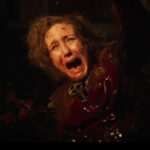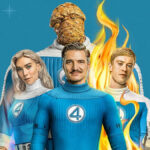David Cronenberg is one of the most fascinating and influential filmmakers of the past 50 years. The Canadian director is known as a pioneer of the “body horror” genre, crafting unsettling, thought-provoking films that explore the dark sides of human nature, technology, and how they intersect.
To celebrate Cronenberg’s remarkable career, let’s rank 15 of his most notable films, from the decent to the downright iconic. Whether you’re a hardcore Cronenberg fan or just getting into his unique brand of cinema, there’s something on this list for every movie lover.
15. Crimes of the Future (1970)
Not to be confused with Cronenberg’s 2022 film of the same name, this early work is more of an interesting curiosity than a must-watch classic. Shot on a shoestring budget, Crimes of the Future showcases the director’s burgeoning talent and fascination with the human body. However, the surreal plot and over-the-top tone make it a challenging watch for casual viewers. Still, devoted Cronenberg fans will appreciate seeing the early seeds of his signature style.
14. Fast Company (1979)
Fast Company is an outlier in Cronenberg’s filmography, a straightforward drag racing drama without any of his usual mind-bending themes or graphic body horror. While competently made, the film lacks the distinctive Cronenberg touch that makes his other works so memorable. Fast Company is worth a watch for completists, but casual fans can safely skip this one without missing out on any essential viewing.
13. M. Butterfly (1993)
Based on a true story, M. Butterfly follows a French diplomat (Jeremy Irons) who falls in love with a Chinese opera singer (John Lone), unaware that his beloved is actually a man and a spy. While the film tackles intriguing themes of cultural misunderstanding, gender identity, and self-deception, it never quite reaches the heights of Cronenberg’s best work. Irons and Lone give strong performances, but the pacing drags at times, making M. Butterfly a worthwhile but flawed entry in the director’s canon.
12. Cosmopolis (2012)
Adapted from Don DeLillo’s novel, Cosmopolis is a surreal, darkly comic odyssey through the mind of a young billionaire (Robert Pattinson) as he rides across Manhattan in a stretch limo. Cronenberg’s film is a challenging, often frustrating work that will divide audiences. Some will be captivated by its dense dialogue and allegorical musings on wealth, technology, and the human condition. Others will find it pretentious and impenetrable. Love it or hate it, Cosmopolis is a singular experience that showcases Cronenberg’s uncompromising vision.
11. Scanners (1981)
Scanners is a sci-fi thriller about a group of telepaths, or “scanners,” embroiled in a shadowy corporate conspiracy. While not as thematically rich as some of Cronenberg’s other films, Scanners is still a gripping, imaginative ride with some truly unforgettable moments (like the infamous exploding head scene). Michael Ironside is chilling as the villainous scanner Darryl Revok, and the film’s exploration of the dangers of unchecked power feels as relevant as ever. Scanners may not be top-tier Cronenberg, but it’s a must-see for any fan of the director or the sci-fi genre.
10. The Brood (1979)
The Brood is a deeply personal film for Cronenberg, reflecting his own painful divorce and custody battle. The story follows a man (Art Hindle) trying to protect his daughter from his mentally unstable ex-wife (Samantha Eggar) and the bizarre, murderous creatures she’s somehow birthing. The Brood is a disturbing, emotionally raw work that showcases Cronenberg’s ability to use horror as a means of exploring real-world trauma. Eggar is terrifying as the unhinged Nola, and the film’s climax is one of the most shocking and unforgettable in Cronenberg’s entire filmography.
9. Naked Lunch (1991)
Loosely based on William S. Burroughs’ notorious novel, Naked Lunch is a surreal, darkly comic trip through the mind of an exterminator (Peter Weller) who becomes addicted to his own insecticide. As reality blurs with drug-induced hallucinations, he descends into a nightmarish world of talking typewriters, giant bugs, and shadowy conspiracies. Naked Lunch is a challenging, often impenetrable work that will frustrate some viewers with its nonlinear structure and grotesque imagery. But for those willing to take the ride, it’s a one-of-a-kind experience that showcases Cronenberg’s unparalleled imagination and his fearless approach to adapting “unfilmable” material.
8. The Dead Zone (1983)
Based on Stephen King’s novel, The Dead Zone follows a schoolteacher (Christopher Walken) who awakens from a coma with psychic abilities, which he uses to track down a serial killer and prevent a future catastrophe. While more restrained than some of Cronenberg’s other films, The Dead Zone is still a gripping, emotionally resonant thriller anchored by Walken’s powerful lead performance. The film’s exploration of the burden of foresight and the consequences of changing fate is both thought-provoking and poignant, making it one of Cronenberg’s most accessible and moving works.
7. Eastern Promises (2007)
Eastern Promises is a gritty crime thriller about a London midwife (Naomi Watts) who becomes entangled with the Russian mob after trying to uncover the identity of a dead teenager’s baby. Viggo Mortensen delivers a chilling, charismatic performance as Nikolai, a driver for the mob with mysterious motives. Cronenberg brings his signature style to the crime genre, infusing the film with moments of shocking violence and moral ambiguity. The result is a tense, engrossing thriller that ranks among the director’s best latter-day works.
6. Crash (1996)
Based on J.G. Ballard’s controversial novel, Crash is a provocative, unsettling exploration of the intersection between sex, violence, and technology. The film follows a group of people who find themselves aroused by car crashes and begin staging increasingly dangerous accidents to satisfy their perverse desires. Crash is not for the faint of heart, with its graphic depictions of sex and violence and its taboo subject matter. But for those willing to engage with its challenging themes, it’s a daring, thought-provoking work that pushes the boundaries of what cinema can explore.
5. A History of Violence (2005)
A History of Violence stars Viggo Mortensen as Tom Stall, a mild-mannered diner owner whose life is upended when his violent past catches up with him. What follows is a gripping, morally complex thriller that explores the nature of violence and the consequences of burying one’s true self. Mortensen delivers a powerhouse performance, effortlessly shifting between Tom’s gentle family man persona and his ruthless alter ego. Cronenberg directs with his usual precision and unflinching gaze, crafting a film that is both thrilling and deeply unsettling. A History of Violence is a masterful deconstruction of the American hero myth and a highlight of Cronenberg’s later career.
4. Dead Ringers (1988)
Dead Ringers stars Jeremy Irons in a dual role as Elliot and Beverly Mantle, twin gynecologists whose close bond turns sinister when they both fall for the same woman (Geneviève Bujold). As their relationship deteriorates, the brothers descend into madness and depravity, blurring the lines between their identities with horrifying consequences. Irons delivers a tour-de-force performance, crafting two distinct yet inextricably linked characters, and Cronenberg directs with chilling precision, slowly ratcheting up the tension until the film’s unforgettable climax. Dead Ringers is a disturbing, psychologically complex work that ranks among Cronenberg’s most accomplished films.
3. Videodrome (1983)
Videodrome is a mind-bending sci-fi horror film about a cable TV programmer (James Woods) who becomes obsessed with a mysterious broadcast that seems to cause hallucinations and bodily mutations in its viewers. As he descends deeper into the world of Videodrome, the lines between reality and fantasy blur, leading to a shocking, surreal climax. Videodrome is vintage Cronenberg, a film that explores the ways in which technology can warp our perceptions and desires, ultimately consuming us from the inside out. With its groundbreaking special effects and provocative themes, Videodrome remains one of Cronenberg’s most influential and enduring works.
2. The Fly (1986)
The Fly is Cronenberg’s masterful remake of the 1958 sci-fi classic, starring Jeff Goldblum as a brilliant but eccentric scientist who accidentally merges his DNA with that of a housefly, slowly transforming into a grotesque hybrid creature. What follows is a tragic, horrifying tale of love, ambition, and the consequences of playing God. Goldblum delivers a career-best performance, imbuing his character with equal parts charm, pathos, and monstrosity, and Cronenberg directs with his signature blend of visceral body horror and emotional depth. The Fly is a timeless classic that showcases Cronenberg at the height of his powers, a film that is as heartbreaking as it is terrifying.
1. Spider (2002)
Spider is a haunting, deeply moving portrait of a mentally ill man (Ralph Fiennes) struggling to piece together his fragmented memories of a traumatic childhood. As he wanders the streets of London, Spider’s past and present begin to blur, leading to a shocking revelation about the fate of his mother (Miranda Richardson). Fiennes delivers a tour-de-force performance, disappearing completely into the role of the tortured, unreliable narrator, and Cronenberg directs with a delicate, almost dreamlike touch, slowly unraveling the mystery of Spider’s psyche. Spider is a quiet, understated masterpiece that ranks among Cronenberg’s most powerful and affecting works, a film that lingers long after the credits roll.
David Cronenberg’s filmography is a testament to his uncompromising vision, his fearless exploration of the darkest corners of the human psyche, and his ability to blend genres and push boundaries in ways few other filmmakers dare. From his early body horror classics to his later, more introspective works, Cronenberg has left an indelible mark on cinema, influencing countless filmmakers and challenging audiences to confront their deepest fears and desires. These 15 films represent the best of Cronenberg’s unique and unforgettable oeuvre, a body of work that will continue to fascinate, unsettle, and inspire for generations to come.





